
New Zealand, new insights
A visit to New Zealand is to witness a growing movement targeting the killing of pest animals and the excitement in seeing the return of birds and their songs.

A visit to New Zealand is to witness a growing movement targeting the killing of pest animals and the excitement in seeing the return of birds and their songs.

A commitment to tackle a major invasive ant risk in the Townsville and Cairns regions has been locked in by the Albanese Government in the federal budget.

Our breakdown of the very worst and very best parts of the country’s biggest environment report in five years.

In August 2021, a member of the public noticed some troubling symptoms on their maple tree in East Fremantle.
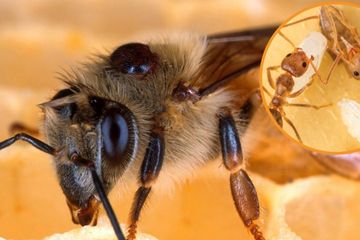
Varroa mites were detected in two of six sentinel hives at the Port of Newcastle, NSW, on 22 June. As of the latest official update on 27 July, there are now 43 known infested premises across central-eastern and north-eastern NSW.

Today’s announcement of a NSW Government $32.9 million investment in biosecurity for Lord Howe will ensure the island stays rodent free.
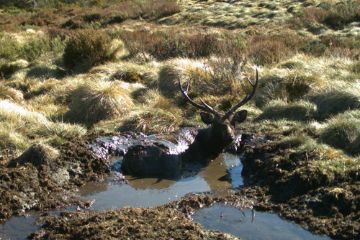
A new report from Frontier Economics warns that not controlling the impacts of feral deer in Victoria could cost the community $2.2 billion.

Today’s announcement by Labor to dedicate $24.8 million to tackle yellow crazy ant infestations in Cairns and Townsville regions if it wins the next federal election would bring much needed relief to northern Queensland from this destructive invasive pest.
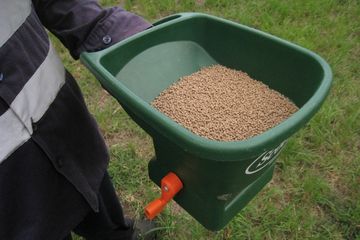
The Coalition’s announcement of $3 million for the next 12 months of the yellow crazy eradication program is welcome, as federal funding for the program will run out in June.
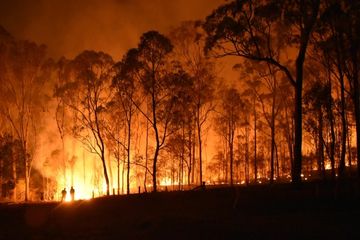
Five national conservation groups launched a report called Averting Extinctions.

The infestations are so severe in the region they are now entering people’s homes and backyards and decimating local wildlife.
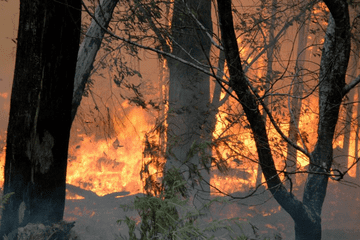
Our election guide to what needs to be done to tackle the #1 threat to our environment.
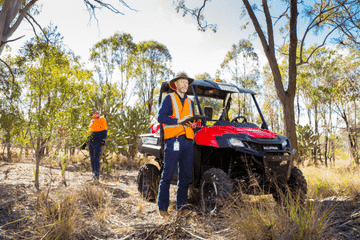
Three new national Froggatt Award winners were announced today, while a 2019 award to Southern Downs Regional Council was revoked.

The Invasive Species Council has awarded the Rodent Eradication Project managed by the Lord Howe Island Board with a national Froggatt Award for their efforts controlling rodents on one of Australia’s natural treasures.

The community campaign Gamba Grass Roots has been awarded a national Froggatt Award for their work tackling one of Australia’s most alarming invasive species.

A visit to New Zealand is to witness a growing movement targeting the killing of pest animals and the excitement in seeing the return of birds and their songs.

A commitment to tackle a major invasive ant risk in the Townsville and Cairns regions has been locked in by the Albanese Government in the federal budget.

Our breakdown of the very worst and very best parts of the country’s biggest environment report in five years.

In August 2021, a member of the public noticed some troubling symptoms on their maple tree in East Fremantle.

Varroa mites were detected in two of six sentinel hives at the Port of Newcastle, NSW, on 22 June. As of the latest official update on 27 July, there are now 43 known infested premises across central-eastern and north-eastern NSW.

Today’s announcement of a NSW Government $32.9 million investment in biosecurity for Lord Howe will ensure the island stays rodent free.

A new report from Frontier Economics warns that not controlling the impacts of feral deer in Victoria could cost the community $2.2 billion.

Today’s announcement by Labor to dedicate $24.8 million to tackle yellow crazy ant infestations in Cairns and Townsville regions if it wins the next federal election would bring much needed relief to northern Queensland from this destructive invasive pest.

The Coalition’s announcement of $3 million for the next 12 months of the yellow crazy eradication program is welcome, as federal funding for the program will run out in June.

Five national conservation groups launched a report called Averting Extinctions.

The infestations are so severe in the region they are now entering people’s homes and backyards and decimating local wildlife.

Our election guide to what needs to be done to tackle the #1 threat to our environment.

Three new national Froggatt Award winners were announced today, while a 2019 award to Southern Downs Regional Council was revoked.

The Invasive Species Council has awarded the Rodent Eradication Project managed by the Lord Howe Island Board with a national Froggatt Award for their efforts controlling rodents on one of Australia’s natural treasures.

The community campaign Gamba Grass Roots has been awarded a national Froggatt Award for their work tackling one of Australia’s most alarming invasive species.

A visit to New Zealand is to witness a growing movement targeting the killing of pest animals and the excitement in seeing the return of birds and their songs.

A commitment to tackle a major invasive ant risk in the Townsville and Cairns regions has been locked in by the Albanese Government in the federal budget.

Our breakdown of the very worst and very best parts of the country’s biggest environment report in five years.

In August 2021, a member of the public noticed some troubling symptoms on their maple tree in East Fremantle.

Varroa mites were detected in two of six sentinel hives at the Port of Newcastle, NSW, on 22 June. As of the latest official update on 27 July, there are now 43 known infested premises across central-eastern and north-eastern NSW.

Today’s announcement of a NSW Government $32.9 million investment in biosecurity for Lord Howe will ensure the island stays rodent free.

A new report from Frontier Economics warns that not controlling the impacts of feral deer in Victoria could cost the community $2.2 billion.

Today’s announcement by Labor to dedicate $24.8 million to tackle yellow crazy ant infestations in Cairns and Townsville regions if it wins the next federal election would bring much needed relief to northern Queensland from this destructive invasive pest.

The Coalition’s announcement of $3 million for the next 12 months of the yellow crazy eradication program is welcome, as federal funding for the program will run out in June.

Five national conservation groups launched a report called Averting Extinctions.

The infestations are so severe in the region they are now entering people’s homes and backyards and decimating local wildlife.

Our election guide to what needs to be done to tackle the #1 threat to our environment.

Three new national Froggatt Award winners were announced today, while a 2019 award to Southern Downs Regional Council was revoked.

The Invasive Species Council has awarded the Rodent Eradication Project managed by the Lord Howe Island Board with a national Froggatt Award for their efforts controlling rodents on one of Australia’s natural treasures.

The community campaign Gamba Grass Roots has been awarded a national Froggatt Award for their work tackling one of Australia’s most alarming invasive species.
Get our blog the Feral Herald delivered to your inbox.

The Invasive Species Council was formed in 2002 to seek stronger laws, policies and programs to protect nature from harmful pests, weeds and diseases.
The Invasive Species Council acknowledges the Traditional Custodians throughout Australia and their connections to land and sea. We pay our respect to their Elders past and present and extend that respect to all Aboriginal and Torres Strait Islander peoples today.
Our protected areas are being trashed, trampled, choked and polluted by an onslaught of invaders. Invasive species are already the overwhelming driver of our animal extinction rate, and are expected to cause 75 of the next 100 extinctions.
But you can help to turn this around and create a wildlife revival in Australia.
From numbats to night parrots, a tax-deductible donation today can help defend our wildlife against the threat of invasive weeds, predators, and diseases.
As the only national advocacy environment group dedicated to stopping this mega threat, your gift will make a big difference.
A silent crisis is unfolding across Australia. Every year, billions of native animals are hunted and killed by cats and foxes. Fire ants continue to spread and threaten human health. And the deadly strain of bird flu looms on the horizon. Your donation today will be used to put the invasive species threat in the media, make invasive species a government priority, ensure governments take rapid action to protect nature and our remarkable native wildlife from invasives-led extinction, death and destruction.
If you are having trouble submitting a form, please read this guide.
Please fill out the following form and one of our team will be in contact to assist as soon as possible. Please make sure to include any helpful information, such as the device you were using (computer, tablet or mobile phone) and if known, your browser (Mozilla Firefox, Chrome, Safari etc)
"*" indicates required fields
Dear Project Team,
[YOUR PERSONALISED MESSAGE WILL APPEAR HERE.]
I support the amendment to the Kosciuszko National Park Wild Horse Heritage Management Plan to allow our incredible National Parks staff to use aerial shooting as one method to rapidly reduce feral horse numbers. I want to see feral horse numbers urgently reduced in order to save the national park and our native wildlife that live there.
The current approach is not solving the problem. Feral horse numbers have rapidly increased in Kosciuszko National Park to around 18,000, a 30% jump in just the past 2 years. With the population so high, thousands of feral horses need to be removed annually to reduce numbers and stop our National Park becoming a horse paddock. Aerial shooting, undertaken humanely and safely by professionals using standard protocols, is the only way this can happen.
The government’s own management plan for feral horses states that ‘if undertaken in accordance with best practice, aerial shooting can have the lowest negative animal welfare impacts of all lethal control methods’.
This humane and effective practice is already used across Australia to manage hundreds of thousands of feral animals like horses, deer, pigs, and goats.
Trapping and rehoming of feral horses has been used in Kosciuszko National Park for well over a decade but has consistently failed to reduce the population, has delayed meaningful action and is expensive. There are too many feral horses in the Alps and not enough demand for rehoming for it to be relied upon for the reduction of the population.
Fertility control as a management tool is only effective for a small, geographically isolated, and accessible population of feral horses where the management outcome sought is to maintain the population at its current size. It is not a viable option to reduce the large and growing feral horse population in the vast and rugged terrain of Kosciuszko National Park.
Feral horses are trashing and trampling our sensitive alpine ecosystems and streams, causing the decline and extinction of native animals. The federal government’s Threatened Species Scientific Committee has stated that feral horses ‘may be the crucial factor that causes final extinction’ for 12 alpine species.
I recognise the sad reality that urgent and humane measures are necessary to urgently remove the horses or they will destroy the Snowies and the native wildlife that call the mountains home. I support a healthy national park where native species like the Corroboree Frog and Mountain Pygmy Possum can thrive.
Dear Project Team,
[YOUR PERSONALISED MESSAGE WILL APPEAR HERE.]
I support the amendment to the Kosciuszko National Park Wild Horse Heritage Management Plan to allow our incredible National Parks staff to use aerial shooting as one method to rapidly reduce feral horse numbers. I want to see feral horse numbers urgently reduced in order to save the national park and our native wildlife that live there.
The current approach is not solving the problem. Feral horse numbers have rapidly increased in Kosciuszko National Park to around 18,000, a 30% jump in just the past 2 years. With the population so high, thousands of feral horses need to be removed annually to reduce numbers and stop our National Park becoming a horse paddock. Aerial shooting, undertaken humanely and safely by professionals using standard protocols, is the only way this can happen.
The government’s own management plan for feral horses states that ‘if undertaken in accordance with best practice, aerial shooting can have the lowest negative animal welfare impacts of all lethal control methods’.
This humane and effective practice is already used across Australia to manage hundreds of thousands of feral animals like horses, deer, pigs, and goats.
Trapping and rehoming of feral horses has been used in Kosciuszko National Park for well over a decade but has consistently failed to reduce the population, has delayed meaningful action and is expensive. There are too many feral horses in the Alps and not enough demand for rehoming for it to be relied upon for the reduction of the population.
Fertility control as a management tool is only effective for a small, geographically isolated, and accessible population of feral horses where the management outcome sought is to maintain the population at its current size. It is not a viable option to reduce the large and growing feral horse population in the vast and rugged terrain of Kosciuszko National Park.
Feral horses are trashing and trampling our sensitive alpine ecosystems and streams, causing the decline and extinction of native animals. The federal government’s Threatened Species Scientific Committee has stated that feral horses ‘may be the crucial factor that causes final extinction’ for 12 alpine species.
I recognise the sad reality that urgent and humane measures are necessary to urgently remove the horses or they will destroy the Snowies and the native wildlife that call the mountains home. I support a healthy national park where native species like the Corroboree Frog and Mountain Pygmy Possum can thrive.